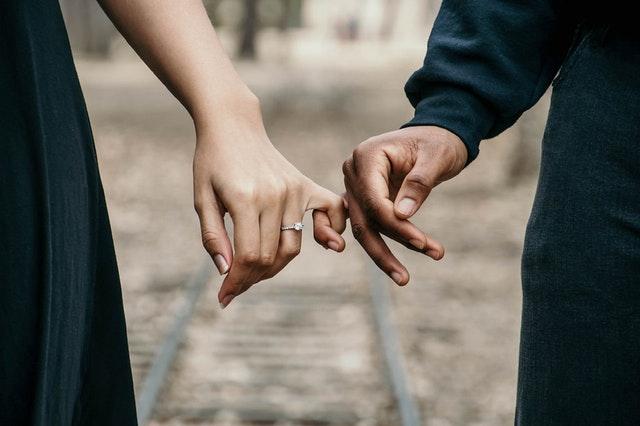Valentine’s day can be very polarizing – for some, it’s a day of celebrating their relationships, especially their romantic ones. For others it feels like a day of consumerism or rubbing their own loneliness or lack of relationship in their face, leading to a backlash of humorous or anti-Valentine day ventures, like the Bronx Zoo’s offer to name a cockroach after your ex.
We spoke with New Rochelle born Hypnotherapist Shalom Shore about ways in which everyone can make the most of Valentine’s day. Here are four tips for finding love and improving your existing relationships, shared from Shore’s four-part hypnosis program for improving relationships.
1. Grow as a Person
The only thing we can really control in our lives, is ourselves. And that’s both good and bad news. It’s bad news because you can never make someone fall in love with you – even the Genie in Aladdin refused to do it. The good news is, you can continuously work to develop yourself, which ultimately will make you more attractive.
“Confidence, kindness, emotional intelligence and a sense of purpose are always appealing traits,” says Shore. And these are traits that one can actively work to develop through concerted effort and introspection. It happens to be that hypnosis is a great way to understand yourself better and quickly adopt new positive habits and behaviors. But there are multiple techniques for self growth, for coaching to meditation, that can help you grow and develop.
2. Connect with your Inner Child
One of the tenants of psychodynamic psychology is that we unconsciously seek out relationships that mirror our own relationships with our parents. And 100% of the time, these relationships are flawed, by virtue of the fact that our parents are human too, and therefore imperfect.
A concept in psychology called Attachment Theory stipulates that we learn to connect with others in different ways, depending on how we were raised. Some of us develop healthy, secure attachment styles. Others though, develop insecure attachment anxious attachment styles, where we regularly worry about others leaving us or not being good enough; or avoidant attachment styles where we pretend we don’t relationships and remain aloof and unreachable.
The attachment styles can play out over and over again in our romantic relationships and in friendships, unless one proactively works to identify and heal this pattern. A key technique in healing one’s attachment style and creating a more secure one, is by developing a better relationship with our own inner child.
“We all have a six year old that still lives within us,” explains shore. “And at some point it becomes our responsibility to parent him or her in ways that maybe our parents never did.” Through guided imagery and role playing, you can actually heal past traumas and memories and develop a more secure attachment style. This can lead to tangible improvements in your relationships with others.
3. Set Healthy Boundaries
As part of our desire to be cared for, and to compensate for our flawed experiences with our parents, we often subconsciously lean on other people to fill in gaps in our own responsibilities, or allow others to do the same for us.
There is often a romanticized view whereby in a romantic relationship two people essentially become one, or start to owe each other things as part of their relationship. “One of the most controversial points I teach people,” says Shore. “Is that you never owe anyone anything, even in a relationship, and that conversely, no one ever owes you anything either.”
Having an attitude of independence, where you continuously choose to give to another not because you have to but because you want to, forces you to continuously examine if a relationship is still serving you. On the flip side, it also absolves others of “owing you” things because of anything or everything you’ve done for them in the past.
This attitude addresses a lot of the “enmeshment” that comes along with many relationships, and leads to resentment, burnout, or guilt.
Start by asking examining if there are areas in your relationship where you feel a sense of obligation instead of a desire to give – and conversely, check if you feel like others owe you something (regardless of how much you’ve done for them in the past!). A key word to keep an ear out for is “should”, which suggests unhealthy expectations and a sense of obligation.
4. Get Comfortable with Loneliness
As humans, we tend to gravitate towards feelings that feel good, and avoid unpleasant feelings and sensations. This is a natural part of human biology, but it can get us into a lot of trouble – fleeing anxiety can lead to addictions, and running away from loneliness can lead to desperation or unhealthy relationships that are tolerated because the alternative feels too bleak to handle.
As humans, we desire connection. It is part of our genetic makeup. It’s not worth denying it, or pretending that we’re totally fine being alone. Loneliness is an affliction that affects all of us, even the most rich and powerful, because ultimately we understand that we came into the world alone and will one day leave it the same way. And this can sometimes lead to a desperate feeling of need for connection.
However, the best way to find a stable, happy relationship with others is, paradoxically, but not needing them, but rather just wanting them. To reach this stage, says Shore, one must pass through “the valley of loneliness” and become comfortable with it.
By allowing yourself to experience loneliness instead of running away from it (a simple meditation practice can be very helpful for this) is a key step in healing. Emotions don’t last forever, and giving them permission to rise up and express themselves fully is one of the best ways to actually release that wave of loneliness and move on from it,” recommends Shore.
The journey of personal growth and connection with others is a long and individual one. No two people struggle with the exact same thing, or experience life or their childhood in the same way. We hope you find the insights and processes that best fit your needs and desires in your journey towards self-actualization.
Wishing you a happy valentine’s day!








